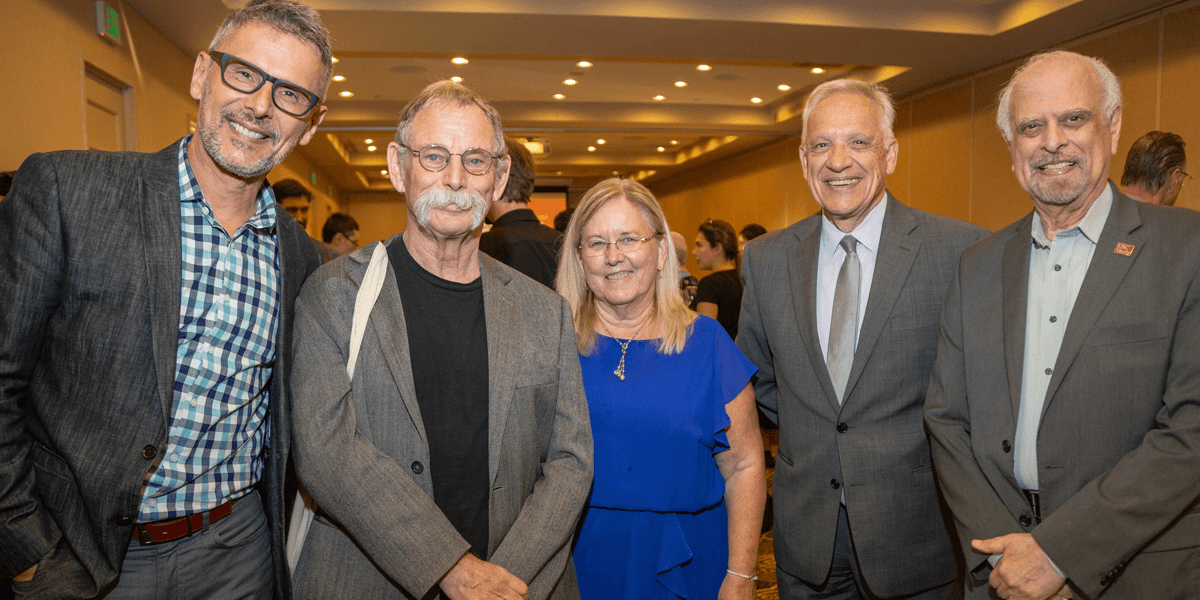
(Left-right) Guests included Professor Nenad Medvidović, chair of the Thomas Lord Department of Computer Science; Professor Neil Siegel; Marilee Wheaton, president of INCOSE; Yannis Yortsos, dean of the Viterbi School of Engineering; Professor Azad Madni. Photo/Noe Montes.
Organized by the USC Viterbi School of Engineering, the Barry W. Boehm Memorial Tribute took place at the USC Hotel, Sep. 14, to remember Boehm who passed away on Aug. 20, 2022.
Boehm was 87 at the time of his death and had served as a distinguished professor of computer science, industrial and systems engineering and astronautics until his retirement from USC in May 2022.
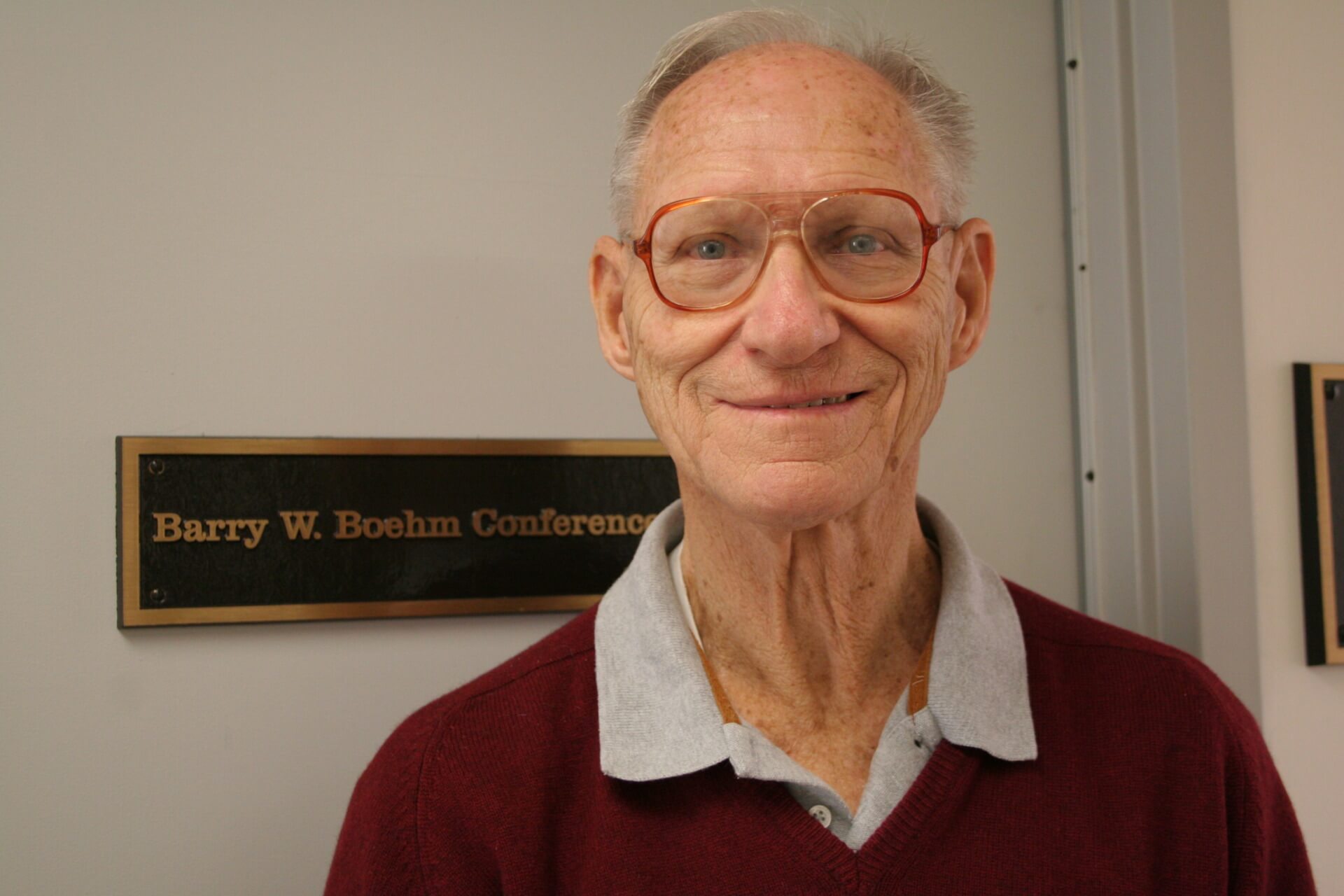
Barry Boehm was known as a gentle individual and passionate researcher. Photo/USC Viterbi.
The memorial included a plethora of anecdotes and tributes for Boehm as well as a number of lectures by USC faculty on cutting-edge research in the field. Faculty members, current PhD students, and former students of Boehm were among the audience.
“His enthusiasm and passion would be missed. His legacy would be carried on by his students,” said Sherry Stukes, a software systems engineer at the NASA Jet Propulsion Laboratory (JPL).
A gentle individual and passionate researcher
A pioneer in the field of software engineering, Boehm was known as a gentle individual and passionate researcher. A prolific writer, he authored more than 900 publications, including his acclaimed book “Software Engineering Economics.” He was also credited as the creator of several software engineering models, which include the Constructive Cost Model (COCOMO), a software cost estimation model, and the Spiral Model.
“His research and his work apply to what I am doing today.” Souti Chattopadhyay
Boehm’s career included several influential roles in the government, non-profit, and commercial industries before he joined USC as faculty in 1992. His arrival led to the formation of the Center for Software Engineering at the University, which became the Center for Systems and Software Engineering in 2006. In 1996, Boehm was elected into the National Academy of Engineering.
The memorial, which started with a welcome lunch, was opened with an introduction by Nenad Medvidović, professor and chair of the Thomas Lord Department of Computer Science. Medvidović shared how Boehm played a large role in helping him start his career at USC.
“He was instrumental in making sure that I received an offer,” Medvidović said. “And the rest is history. I have been at the department for 25 years, 23 of which I spent here with him.”
A visionary who anticipated industry needs
Azad Madni, a professor of astronautics, aerospace and mechanical engineering and education, said he remembers Boehm as a visionary who anticipated industry needs and was constantly active in exploring the convergence of software systems.
Meanwhile, other faculty members shared how they continued to teach Boehm’s work in the classroom.
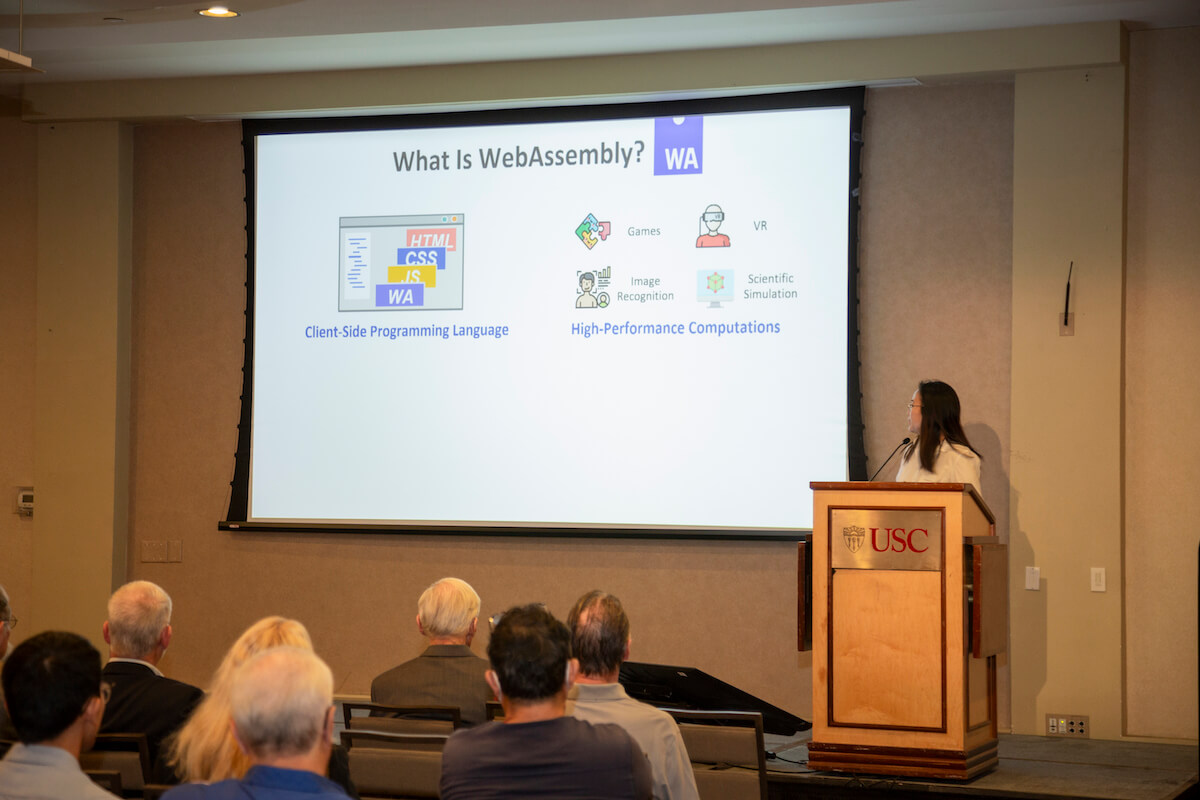
Faculty gave lectures on their research. (Photo/Noe Montes)
“Barry is a legend in the field of software engineering,” said Chao Wang, an associate professor of computer science. “I’m teaching the undergraduate software engineering class and every year I talk about Barry’s work to the younger generation of students.”
In addition to anecdotes about Boehm, the memorial also included technical presentations and lectures by USC professors who shared their research and discussed recent developments in software engineering. This included a presentation on reducing friction between cognitive bias and failures in deep learning, among others. Faculty acknowledged how their current work had been influenced by Boehm.
“His research and his work apply to what I am doing today,” said Souti Chattopadhyay, a WiSE Gabilan assistant professor of computer science. “I’m standing on the shoulders of huge giants.”
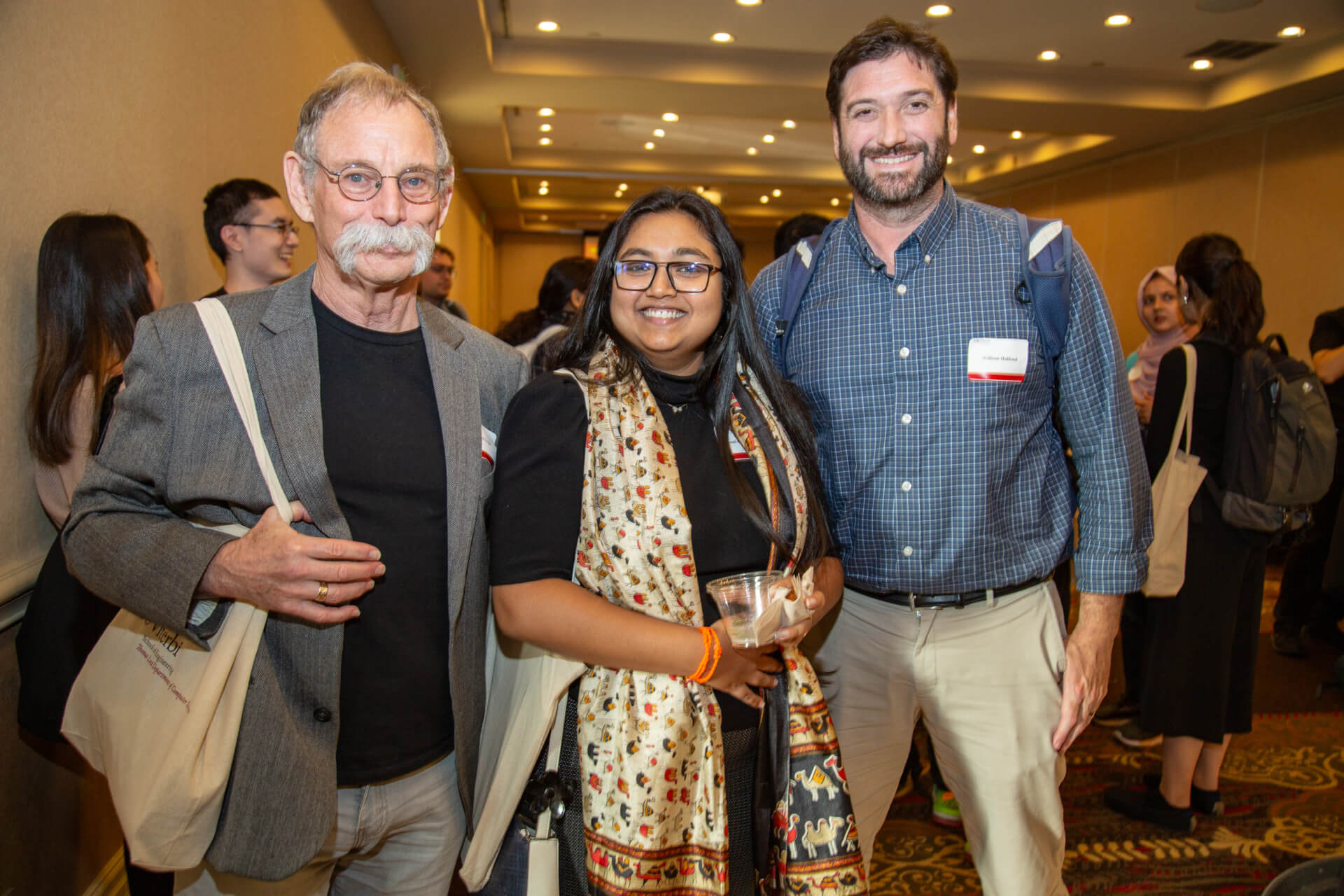
(Left to right) Neil Siegel, Souti Chattopadhyay, William (GJ) Halfond. Photo/Noe Montes.
A wonderful advisor
Outside of his work, Boehm was also remembered as a “wonderful advisor.” Throughout his tenure, Boehm had mentored around 40 doctoral students, including current and past USC professors. This includes Neil Siegel, the USC IBM professor of engineering management and former USC research assistant professor Raymond Madachy.
His colleagues and friends shared that he had a fascination for Richard Halliburton’s Book of Marvels, a collection of travel stories that inspired Boehm’s own traveling journey, which he would often share with others.
“We would send emails to each other that said things like, ‘I just came back from chapter 37. I’m planning a trip to chapter 42,’” Siegel said. “He was great fun.”
“He changed the world for the better.” Neil Siegel
Beyond the classroom, Boehm was a staunch athlete with a competitive spirit who opened his Santa Monica home to play tennis with his PhD students.
“The moment he knew I played tennis, he invited me to play tennis against him,” said his former PhD student Ricardo Valerdi, now the department head of systems and industrial engineering at the University of Arizona. “I was really intimidated because now I’m playing with my PhD advisor.”
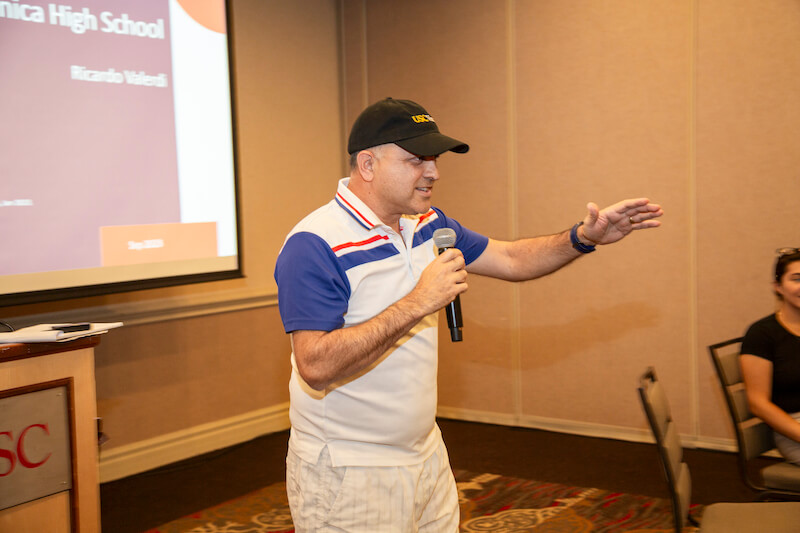
Ricardo Valerdi shared about his days playing tennis with his PhD advisor. (Photo/Noe Montes)
“Barry never dressed super modern, especially on the tennis court,” Valerdi continued. “He kind of strolls around to the baseline and to the net. But once the ball is in play, the man is a beast.”
Following his death, the Boehm family established the Boehm Center for Systems and Software Engineering to continue Boehm’s legacy. The center was inaugurated in May and will continue to support research in system and software development practices as well as estimation of cost for all things related to software engineering and its development.
“He changed the world for the better,” Siegel said. “He changed it profoundly. Every practitioner on the planet, the direction of what they do, has been changed by Dr. Boehm’s work.”
Published on September 28th, 2023
Last updated on May 16th, 2024








